#911 dispatchers
Text
I (do not) Feel Sorry for Him
I know Gerard is going to be an asshole and cause loads of angst as well as hurt/comfort scenes. But I think he’s going to get what he deserves. It’s not just fledgling Hen and Chimney at 118 who are unwilling to take his shit anymore. It’s Hen, Chimney, Buck, Eddie, Ravi, Bobby, Athena, Michael, Tommy, Karen, Maddie, Josh, and 90% of the rest of the dispatch he’s going to have to deal with.
#I am just waiting to see Athena get her hands on him#vincent gerrard#henrietta wilson#chimney han#evan buckley#evan buck buckely#eddie diaz#ravi panikkar#bobby nash#athena grant#Michael#tommy kinard#karen wilson#maddie buckley#josh russo#911 dispatchers#Season 8 is going to be crazy
26 notes
·
View notes
Text
Time-Life Critical
Content warning: emergency medical situations, death
Today I took my first time-life critical call. The first thing I have to establish with any call, no matter what type of call it is, is the location. If I can only get one piece of information, it HAS to be where I'm sending people. If I don't know what's going on, I can send everyone, and let them hash out the situation. But if I don't know where you are, I can't do anything to help.
Once I know the type of call (police, fire, EMS, or a combination of the three), I get the appropriate help started. Most of the Reg towns have policies where police respond to everything, but I still need to let them know whether they're walking into a domestic (statistically the most dangerous call type for responders), a house fire, an overdose-- whatever it is, I want them to be prepared and walk in with the right mindset and an appropriate level of precaution.
In EMD (Emergency Medical Dispatch), we have a set of cards that we read off of to give medical advice when necessary and appropriate for a situation. They're stored on what looks like an old Rolodex, except instead of dates and contacts, it's sorted by medical scenario. Different PSAPs will have different cards based on their protocol, but usually they look about the same.
The first few tabs are for getting enough baseline information to be able to get me to the right situation card. The green cards are for medical situations like allergic reactions and chest pain, while the purple are for traumas, where the patient may be injured rather than sick. Each card will have questions designed to help me decide ALS or BLS response, as well as provide clarifying information to responders so they can have the right tools ready when they arrive on scene. Once I have enough information, I give pre-arrival instructions, which are usually something along the lines of:
"Have the patient stay calm, and do not allow them to exert themselves. Allow them to find a position of comfort. Do not allow them to have anything to eat or drink. If they take medication, have a list of their prescriptions or the bottles ready to show responders."
At this point, if it's a low-stakes situation, I can gather the patient and caller's names, a call-back number (which I ought to have confirmed before now, but sometimes things just move too fast), and the patient's date of birth, and then hang up. I usually advise the caller to call back if anything changes, or I keep them on the line so I can keep an ear on the situation until the ambulance shows up.
Those first few cards, though, the all-callers information, also ask for something else. Different people have different nicknames for it, but I call it "C/A/B" status: is the patient Conscious and Alert, and are they Breathing? This is crucial information, as a 'no' to any of these questions will trigger a "hot" response from responding units. Meanwhile, I jump down to those Time-Life Critical cards. There are tabs for CPR, AED, childbirth, and airway control instructions, and they're the only cards where all I do is read them word for word. The other cards I can skip around a little, depending on the nature of the call.
Today's call would have included CPR, although we never got to the point of giving compressions. By the time the PD had arrived, my caller was trying to get the patient flat on his back on the floor. From what it sounded like, he was struggling to get him out from behind something he was slumped against, possibly a dresser or cabinet.
So, while it was a time-life critical situation, I didn't really do anything helpful except try to keep the caller occupied while we waited for responders. He was, of course, panicked, as a loved one was lying dead in the room next to him and he couldn't even get him out from behind a piece of furniture. The best I could do was keep him too busy thinking about how to help to have time to panic.
From what I heard, I don't think the patient survived. Later, I texted my family group chat to tell them about my first (sort of) CPR call. My brother asked me if I was doing okay, and at first I thought he meant, had I performed well enough? Would my DOR (training evaluation) reflect a competent dispatcher, or would stay on remedial training until I eventually was terminated?
Once I realized that he'd meant, "Are you okay?" as in "That's heavy; are you handling it emotionally?", my reaction was, "Hell yeah. I feel great." I was a bit worried I would freeze up or panic the first time I handled time-life critical. But I performed better than I expected to. The call went into the system quickly and accurately, help arrived in a timely fashion. I did my job well.
"But," I amended, "Ask me again after my shift ends. I might feel differently once I’ve taken off the professional blinders and processed the human emotion side of things."
After work, I went home and really thought through the situation. I really was fine. Did that make me a bad person? Did it say something about my capacity for empathy that I was more focused on my performance than on the reality of the fact that somebody probably died today, and I had just spoken to likely the last person to see him alive? I've always thought of myself as a deeply compassionate person. So what did it mean that I was able to separate myself wholly from the gravity of a situation like that, and view it as nothing more than a day in the office for me?
That's when I realized that I wasn't cold, or unfeeling. The whole reason I wanted this job so badly was that all I wanted to be involved in the process of saving lives. I wanted to take pride in my work, and being the first step in the emergency response process was the way I could do that. It was the place my skills and aptitudes would best serve those in need.
The fact that I could be so distant was a professional skill I've developed rapidly over the last few months. The key to not being "thrown" by calls like this is to break convention: make the situation about yourself.
We as people try to avoid taking another person’s problem and making it about ourselves, because that’s considered selfish and unkind. If your friend confides in you she's been struggling with something, you don't say "hey me too, let me tell you about it!" You can offer your experience to her if doing so will establish a bond between you, but this conversation is about her, and you do your best to keep it that way.
But in this line of work, you have to make it about you. Thoughts like: that guy was in such a hard situation, and man, a human life might’ve been lost tonight, will weigh you down, and the job will swallow you whole.
Instead, you think: how does this affect me? Did I do my job well? What do I stand to gain (experience, perspective, professional acumen)? It goes against social convention, but it keeps you from internalizing the stuff you see (or rather, hear) every day. It’s not about them; it’s about me, and my job, my performance and my success at the situation. Thus, I am no longer emotionally involved in the situation.
It's difficult to override your instincts like that, to subdue for even just short stretches of time the parts of you that feel. But each day I get a little bit better at this job, and though at times I may worry about what that means for my soul, in the end I truly believe the payoff of saving lives will be well worth it.
#911 dispatcher#dizzydispatch#dizzydispatch911#dispatchdiaries#time-life critical#CPR#911#911 dispatchers#first responders#ems#emd#emergency medical dispatch#emergency dispatch#public safety#public safety telecommunicator#coping
2 notes
·
View notes
Text
"Eddie was never gay". Eddie worked in the dispatch building and immediately got into a petty passive aggressive territory bitch fight with Josh, the other gay man in the team. Gay recognises gay <3
#the josh and eddie petty territory fight is hilarious#josh absolutely had his gaydar going OFF#gays fighting in the dispatch building#straights measure dicks queers measure sharp tongues#it is what it is#eddie diaz#911 abc#i want to see josh and eddie being besties actually#buddie#josh russo
4K notes
·
View notes
Text
look we all want buck in tommys hoodie....
but i raise you a tommy who accidentally grabbed bucks hoodie and walks into harbour only to have lucy laugh so hard she falls out of her chair
#i know we're unlikely ever to see it but tommy and lucy bonding over just how WEIRD the 118 is gives me goddamn life#i just think she would be SUCH annoying little sister energy to him and it would be hilarious#like how we get the occasional dispatch storyline??? but a harbor storyline???#i would DIE#anyways please take this under consideration tim i am in your walls#otp: better ways to get your attention#bucktommy#firepilot#kinkley#tommy kinard#evan buckley#lucy donato#911 abc#911 on abc#em speaks
1K notes
·
View notes
Text
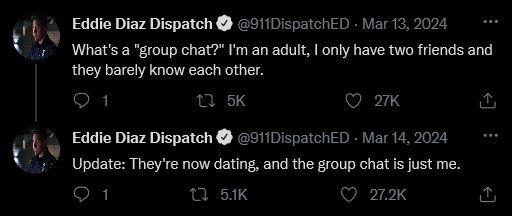
Eddie Diaz forgetting to log out of his work twitter account part 132/?
#911#911 memes#911 twitter#911 abc#incorrect 911#eddie diaz#evan buckley#tommy kinard#buddie#tevan#bucktommy#buddie in their divorce era 3.0#eddie fumbling getting into a throuple#bottom eddie rights#bottom!eddie#top!buck#top!tommy#eddie in his dispatch era
1K notes
·
View notes
Text
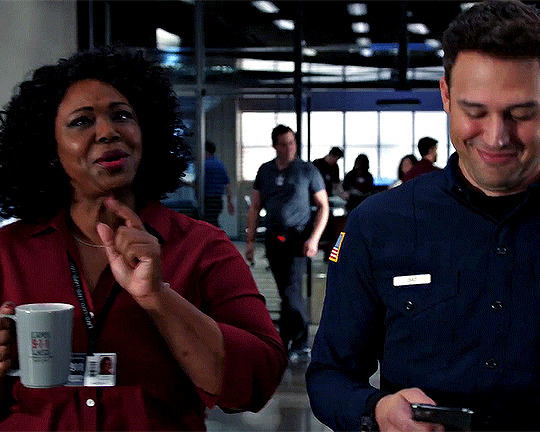

linda's work wives club💼
#911#911edit#911verse#911 abc#eddie diaz#maddie buckley#linda bates#dispatch wouldn't be able to handle all three at once i just know it#continuing my eddie maddie bestiesm agenda#SBedits
532 notes
·
View notes
Text
Maddie, whispering: Eddie worked at dispatch while I was gone, right?
May: Yeah, not as a dispatcher though -
Maddie: Not the point. How much did he talk about Buck while he was here?
May: ...He never really stopped. You were right, they're kind of obsessed with each other.
Maddie, thoughtfully: Good. That's good. We're one step closer to making them realize they're idiots who belong together.
#911 show#911 on abc#buddie#incorrect 911 quotes#incorrect quotes#maddie buckley#may grant#dispatcher gossip times#random thoughts
481 notes
·
View notes
Text
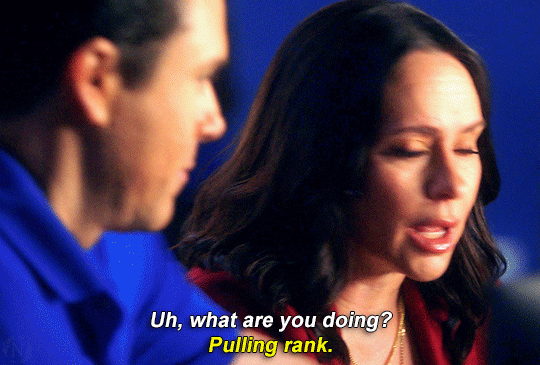

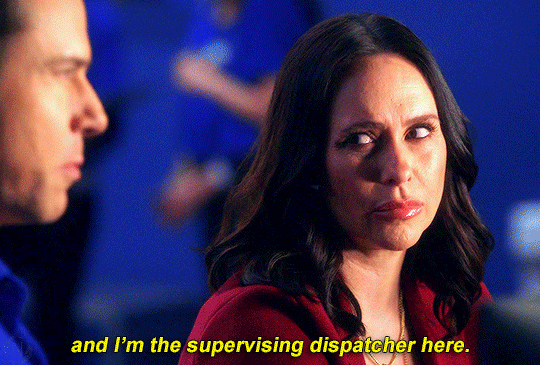
9-1-1 SEASON 7: FAVORITE MOMENTS
↳ part 13/?
#i could watch just these two for 44 minutes easily#abc give me an only dispatch episode pls#maddie buckley#josh russo#911#911 abc#911 7x04#911fave7#my stuff#my gif
278 notes
·
View notes
Text
buck casually mentioning that the last time he played poker he thought maddie was setting him up with josh:
eddie:

#sami rambles#that man would return to dispatch just to see if he could explode josh with his mind#and tbh i think he's powerful enough to manage it#eddie is actually the one who get superpowers#911 spoilers#911 show#911 fox#evan buckley#eddie diaz#buddie#buck x eddie#911 spec#josh russo
2K notes
·
View notes
Text
How To Call 911
So most of my followers know now that I started working last May as a 911 dispatcher. Super proud of myself. And now that I am starting (very much still starting) to settle in a bit, I want to offer some tips on how to call 911. So, hold on to your hats.
(no-color version if the yellow text isn't rendering on your screen correctly)
When in doubt, call 911. Don't take this as me encouraging you to jump at shadows. Your neighbors' loud party is not an emergency, google the local non-emergency line and call that. Neither is the dry cleaning not giving you your clothes (I actually got this call on our 911 line). Nor is the fact that you saw a fox inside city limits (also something a real human called 911 about). But if you see a situation unfolding and you think "this seems dangerous, maybe this is 911-worthy" then it's 911-worthy. Don't hesitate. Call.
If you call 911 and you are freaking out, that's okay. If you're in a crisis, you may not remember a single tip I'm about to give you. We are trained for that, we can handle it, just do the best you can. It's not the end of the world to have a hysterical or frightened caller, and these are tips, not rules.
Location, location, location. We can't send you help if we have nowhere to send it to. Ideally, know the address. Failing that, know the name of a business or a church or an intersection. It is not cheating if you read this off a sign. There isn't a set of invisible rules that says you have to have your exact GPS coordinates memorized. Be prepared to describe the location somehow. That way, if our connection drops and that's all you can tell me, I can still send some police out to come find out what's going on and they can ask for medics or firefighters or whatever if needed. But we absolutely must know where to send assistance, it is the first thing we're going to ask.
Location again, but with a twist. The first thing our office says for emergencies is, "911, what is the address of the emergency?" If a building is on fire, tell us where the fire is. If your neighbors are being robbed at gunpoint across the street, give us their address. If you witnessed a car accident, tell us where the accident happened. The location of the emergency isn't necessarily the location where you are. Don't send police and fire to your office building if the wreck is on the freeway.
Answer the questions that you are asked. If the calltaker asks "Is the patient breathing?" don't start in about the seizure they just had (if they aren't breathing, the seizure they just had is not the biggest problem). If the calltaker asks, "Which way did the man you saw go when they ran?" don't tell them about how they broke down your door (if they are running away, knowing they broke your door down does not help the police know which direction to start looking). The particular question you are asked is being asked for a reason, and that reason is not frivolous but in an emergency, we aren't going to stop and explain everything.
Do not launch into a speech. If you're asked a yes/no question, yes or no is all the answer you should give. Your impulse will be to explain the yes or the no because more information is better than not enough, but overexplaining is its own problem. Now, we are hired for good typist skills, and are encouraged to get better and faster, but infodumping means things can get missed. The calltaker is going to have some information they're going to ask for by protocol and probably the option to drill down on some of it if clarification is needed. If you spend five paragraphs explaining your last answer, it delays getting other pertinent information.
Do not launch into a speech, part the second. You don't call 911 for things that happened last week, or even yesterday. Tell me the emergency that is happening right now. Ideally in one sentence. If someone is having a medical issue, and you call 911 about it, when the calltaker asks exactly what happened, do not tell them about how the patient had a surgery 5-and-a-half weeks ago. You called 911. What is the emergency that is happening right now. Don't be telling me about their surgery when the problem you called about is a broken leg. Yes, the surgery may have led to generalized loss of balance that has yet to return which caused the patient to fall which caused them to break their leg. Understood. But you didn't call because of all of that. You called because of the broken leg. Apply this principle to all emergencies.
Don't launch into a speech, part the third. When asked a specific and direct question, do not give an explanation instead of an answer. If the calltaker asks you "Is the weird person on the side of the road actually in the lanes of traffic?" do not explain to them how it's a very narrow roadway (see parenthesis for the story here). Aside from the fact that we're not asking these questions to be funny (see part the second), there's also the fact that now you are coming over as suspicious as hell. If I asked "how did that person on Facebook know what this supposedly missing kid is wearing and where he's going to be at 3:00 today?" and you say "well Facebook is a good way to spread information" I am now extremely suspicious of you.
(Also an actual call I have taken. The man was a totally ordinary guy out for a walk to the store, but this blue collar man walked through a Rich Person Neighborhood™ and according to Lady Catherine De Bourgh on the phone with me, that merited a call to the police. When I asked her if he was actually in the lanes of traffic [traffic hazard call type] versus not [suspicious person call type, on a technicality but technically...], she tried explaining three times that the road was narrow before she finally got the message that I was not going to stop asking until she told me the actual answer and answered "Well, I suppose so, yes." At this point, because she'd been so reluctant to answer me, I no longer believed the man actually was in the lanes of traffic and to this day believe that she lied to try and manipulate the police into a stronger-level response than was actually warranted. Because determining whether she was lying for sure is beyond the scope of my job, I put down what she said, but I didn't believe then and still don't believe now, that she told the truth. The totally ordinary and probably very nice guy was not arrested or hassled at all and was instead given a courtesy ride to the store.)
Be prepared to describe relevant people, maybe including yourself, and that includes race. If you have an asthma attack at a football game, the medics need to know how to find you in a crowd. If you are a black woman, that's gonna rule out everyone who isn't that. If you are a black woman wearing a yellow shirt, blue jeans, and a blue bandana over your hair, that excludes nearly everybody and when the medics arrive, they'll know exactly who to look for. Most of the time, someone's race isn't relevant information. When describing someone to emergency services, it absolutely is and it is not racist to accurately describe the relevant person or people.
There are more tips in the world, and I may come back to this post and add them as they occur to me. In the meantime, please enjoy this short treatise on how to call 911.
#actual 911#emergency services#tricks and tips#resources#how to call 911#yellow color chosen because dispatchers are gold#no seriously#emergency services have star trek style color coding#and dispatchers are gold#lol
193 notes
·
View notes
Text


#Eddie diaz#eddiediazedit#911edit#911#911verse#my gifs#🪐#I miss pio eddie so much I know this is an unpopular opinion but I wish he had stayed at dispatch.#I know it wasn't his calling but like. he looked so so hot ....and that's what really matters at the end of the day. to me
300 notes
·
View notes
Text
IX-I-I
History Lessons with Dizzy: Part 1 (the Origins of 9-1-1)
Content warning: brief mentions of domestic violence, school shootings, and death
"Hurry!" coughed one little boy. "Hurry! Get us out!"
"We're suffocating!" the other cried, his voice echoing from beneath the boulder that has entrapped them.
Through coughs and pleas for aid, one of the two boys managed to utter one of the funniest lines ever written into a kids' movie, if you're sharp enough to pick it up:
youtube
"Somebody call IX-I-I!"
This moment from Disney's 1997 film Hercules has always been one of my favorite moments. For anyone who doesn't get it, the boy is pleading for some bystander to dial IX-I-I, which is how one might represent 9-1-1 in Roman numerals.
The reference is further anachronized by the fact that, despite using the titular hero's Roman name (Hercules was, by many accounts, a Romanized take on the Greek Heracles), it is well-established that the movie takes place in Greece. Roman numerals wouldn't be invented until the ninth century B.C.E., whereas the hero Heracles would have been assumed to live closer to 1280 B.C.E., a few decades prior to the start of the Trojan War-- three hundred years prior to the advent of Roman numerals.
However inconsistent with historical and mythological timelines, the detail is, nevertheless, still amusing. Of course, to the layperson (especially one who didn't spend their junior high years poring over the Percy Jackson series, and who certainly wouldn't have read The Iliad well before high school), the joke is as forgettable as it is quick.
Most people my age grew up being taught that, in case of emergency, you dial 9-1-1. I can't remember a time I didn't know that. Even if my parents hadn't taught me, my kindergarten would have, when the fire department did yearly visits to the local elementary schools to teach kids how to do that funky little dance we call stop, drop, and roll.
So it's probably a bit mind-boggling for anyone under the age of thirty to realize that "Call 9-1-1" wouldn't be the accompanying lyrics to the You're On Fire: Now What? choreography. Today, about 96% of the United States is covered by 9-1-1, with much of the "dead space" belonging to areas where cell service is not a guarantee anyway.
But 9-1-1 has only been around for about fifty years. In fact, my town still has the old copper lines in operation today, their upkeep likely due to the not-insubstantial population of mostly older folks who still use them to dial the Police and Fire Departments directly.
In the "old days," to report a fire, you'd call your town's local FD directly. To request police response to a scene, you'd call the PD. The first "dispatchers" were often just whatever officers happened to be in the station. There were also no standards by which these officers would be obligated to respond to every reported emergency.

This lack of response standards is how you get fiascos like the one depicted in one of my favorite campy horror movies, Killer Klowns from Outer Space (1988). I had a movie night with some work friends once, and we turned this one into a drinking game: Take A Shot Every Time Someone Does Something That Would Get You Fired In 2024.
Before 9-1-1, if you were in need of medical transport, you would have called a hospital. (If the hospital could spare you an ambulance, it wouldn't have been staffed by medical professionals, either. The advent and development of EMS as we now know it was a result of the spread of large highways, as the increasing rate of speed in modern vehicles and the danger of their occasional collisions became more and more prevalent-- but that's a topic for another day.)
The need for these numbers to be consolidated was first pointed out in 1957 at the National Association of Fire Chiefs, where the idea for designating one standardized number at which fires could be reported. A decade later, in 1967, the President's Commission on Law Enforcement and Administration of Justice convened and decided that the Fire Chiefs were right.
It was at the suggestion of AT&T to the FCC that the numerals 9-1-1 were chosen, as they were easy both to remember and to dial, and had not yet been assigned either as an area code or a direct line to anywhere.
Up until then, all phone numbers had been seven digits, and the telephone infrastructure was not equipped to take or dial out a 3-digit one. So the structures in place that facilitated telephone communications had to be fixed up in order to process 9-1-1 calls and route them to emergency response agencies, later dubbed "PSAPs". This was a lengthy process, but Congress had backed AT&T's proposal with a series of legislative acts carried out over the next few decades.
The first 9-1-1 call was made on February 16th, 1968 by Rankin Fite, Speaker of the Alabama House of Representatives. However, it wasn't yet a standardized practice. Just because Haleyville, Alabama incorporated 9-1-1, soon to be followed by the State of Alaska and some scattered other places, didn't mean the rest of the country automatically did, too.
Furthermore, by the time that call volume necessitated designated call-takers, such individuals were not equipped the way we are today. My training enables me to virtually triage a mass casualty event, give life-sustaining medical intervention instructions, and analyze (and hopefully diffuse) a variety of dangerous situations. But the idea of EMD wasn't introduced until after 1978, when the Salt Lake Fire/EMS determined that dispatchers could play a far more vital role in saving lives if only they were trained in pre-arrival intervention.
In 1973, the White House's Office of Telecommunications issued a declaration encouraging mass adoption of the program. In the next three years, 9-1-1 was adopted by just under a fifth of the country. By the 80s, it was up to a quarter, with nine states fully covered, and by 1987, about half the country recognized 9-1-1.
Just as the century was about to turn, Congress passed the Wireless Communications and Public Safety Act of 1999, which amended the Communications Act of 1934 (the same bill that created the FCC). The amendment did several things, including officially establishing 9-1-1 as a nationwide emergency number, allowing cell phone carriers to release location information with PSAPs, and requiring that both listed and unlisted phones be able to access 9-1-1, whether they were contracted for phone service or not.
As the 20th Century came to a close, over 90% of the United States had 9-1-1 coverage, and 95% of that was what we call "Enhanced 9-1-1." This refers to the location service that cellular callers mean when they respond to my inquiries about their location by asking me that frustrating question: "Don't you have, like, a map or something?"
(For the record, yes. I have a map. No, I do not wish to gamble your safety, no matter how annoying you are, on the odds that my maps are always correct. Remember, kiddos: 911: Lone Ranger is not a higher authority than my training.)
It's not just the scope of 9-1-1 that has been developing since its inception, however: the quality of 9-1-1 care has been a constant source of legislative motions as well.
In 2013, in a quiet hotel room in Texas, a man broke into the room of Kari Hunt Dunn and her daughter. While Kari recognized the man as her estranged husband and likely pleaded with him to not hurt her, Kari's daughter was trying to call for help. Though only nine years old, she knew to dial 9-1-1 in emergencies-- but unfortunately, the hotel's landline service required its users to dial "9" before making external calls.
To a generation raised with cell phones, the idea of needing to "dial out" is unthinkable, so of course the little girl didn't know why none of her four calls went answered. All she knew is that she'd been told her whole life that, no matter what happened, if she dialed 9-1-1, someone would come to help, and now, nobody was coming.
For five years, Kari's father Hank Hunt fought to make sure nothing like this would ever happen again. Finally, on February 16, 2018, "Kari's Law" was passed federally, requiring all phone service companies to ensure that 9-1-1 would be accessible on all serviceable phones, without the need to dial out.
Along with Kari's law, you also have RAY BAUM’S Act, which highlights the importance of exact location services and encourages PSAPs to use whatever tools and technology are available to obtain as precise a location as possible. There's also Alyssa's Law, named for a victim of the Parkland school shooting, that requires schools to have silent panic alarms linked directly to emergency response services, and has been passed in many states.
It's hard to reconcile the good these laws do with the names we give them: each one a reminder of the people we've failed to save, the disasters we couldn't prevent, the deaths we couldn't stop. But each call I take, I learn a bit more, and I get a little bit better at my job. And with each tragedy that we as emergency responders fail to prevent, we refine our craft a little bit more.
Seeing how 9-1-1 has developed in this time is one way to mark our progress. We've come a long way, after all, from the days of IX-I-I.
#911 dispatch#911 dispatcher#911 dispatchers#dizzydispatch#dizzydispatch911#History Lessons with Dizzy#history of 911#history of emergency response#history of public safety#public safety#history of 9-1-1#origins of 9-1-1#public safety communications#history#Kari's law#RAY BAUM'S Act#Alyssa's Law#Youtube
0 notes
Text
interesting how buck met women on calls while the men (eddie, tk, tommy) are guys he met on his side of things. both he and tommy agreed meeting people (re:victims) on calls never works out. meeting fellow first responders and working together however........
#brain go BRRRRRRRRRR 🫠🫠#buck is bi#.txt#evan buckley#evantommy#bucktommy#911 abc#an argument could be made for abby since she was a dispatcher BUT she sought him out ie. it didnt happen through naturally working together
71 notes
·
View notes
Text

Eddie Diaz forgetting to log out of his work twitter account part 128/?
#911#911 memes#911 twitter#911 abc#incorrect 911#eddie diaz#evan buckley#tommy kinard#buddie#bucktommy#tevan#buddie in their divorce era 3.0#911 spoilers#bottom eddie rights#sad bottom sounds#bottom!eddie#eddie in his dispatch era
829 notes
·
View notes
Text

tagged by the lovelies @steadfastsaturnsrings and @hippolotamus <3
here's a moodboard for my most recent wip: dispatcher eddie and single dad buck!
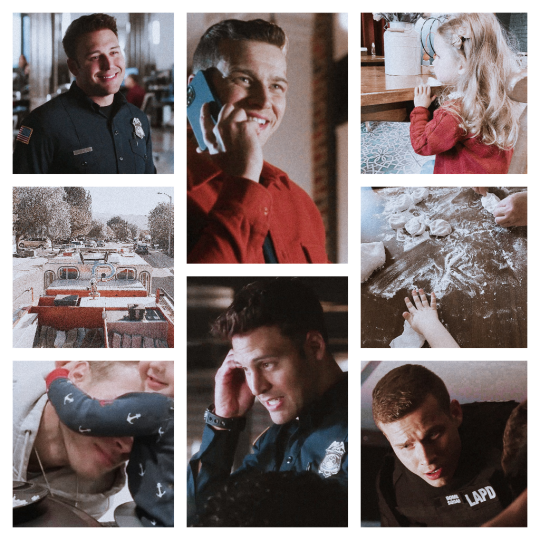
and a lil snippet:
Eddie can hear Buck panicking in the background and a fire alarm going off but Phoebe sounds calm, if not a little annoyed on the phone so Eddie tries not to jump to conclusions just yet.
"Phoebe! Who are you calling?"
"Mr. Eddie! We need help!"
"I told you to stop calling 9-1-1." Buck groans and Eddie really tries not to laugh.
"You said I should call in case of emergency! This is an emergency, daddy!"
"Phoebe, sweetheart. Is anything on fire?"
"I don't know, Mr. Eddie."
A few seconds pass where Eddie hears some muffled sounds and then there's a scratch on the line, before Buck's voice comes out clear and close to Eddie.
"Sorry," Buck coughs. "Nothing is on fire. Please do not call the fire department. My team would never let me live it down."
"Are you and Phoebe okay?"
"Yeah, we were just baking some muffins for her school's sale and— I swear usually I don't have any issues. This is a one time thing."
Eddie bites down a smile. "Sure. That's what they always said."
"Shut up, Diaz."
tagging (no pressure): @buddierights @monsterrae1 @hoodie-buck @prettyboybuckley @giddyupbuck @daffi-990 @disasterbuckdiaz @eddiebabygirldiaz @pirrusstuff @spaceprincessem @the-likesofus @honestlydarkprincess @bigfootsmom @maygrantgf @callaplums @eddiediaztho @exhuastedpigeon @911-on-abc @911onabc @housewifebuck @wildlife4life @weewootruck @forthewolves @thewolvesof1998 @jesuisici33 @spotsandsocks @rogerzsteven @heartshapedvows @athenagranted @wikiangela @rainbow-nerdss @tails89 and anyone else who wants to do it! feel free to take this as ur tag <333
#dispatcher eddie! dad buck!#evan buckley#eddie diaz#buck x eddie#buddie#buddie fic#buddie wip#my wips#my fics#911 fic#911 wip#911 abc#911 on abc#my writing
180 notes
·
View notes
Text

Dan Arthr your Bobbie s
#bbc merlin#merlin#arthur pendragon#merthur#my art#hello I graduated and am now a 911 dispatcher and am too tired to do ANYTHING!!!
1K notes
·
View notes